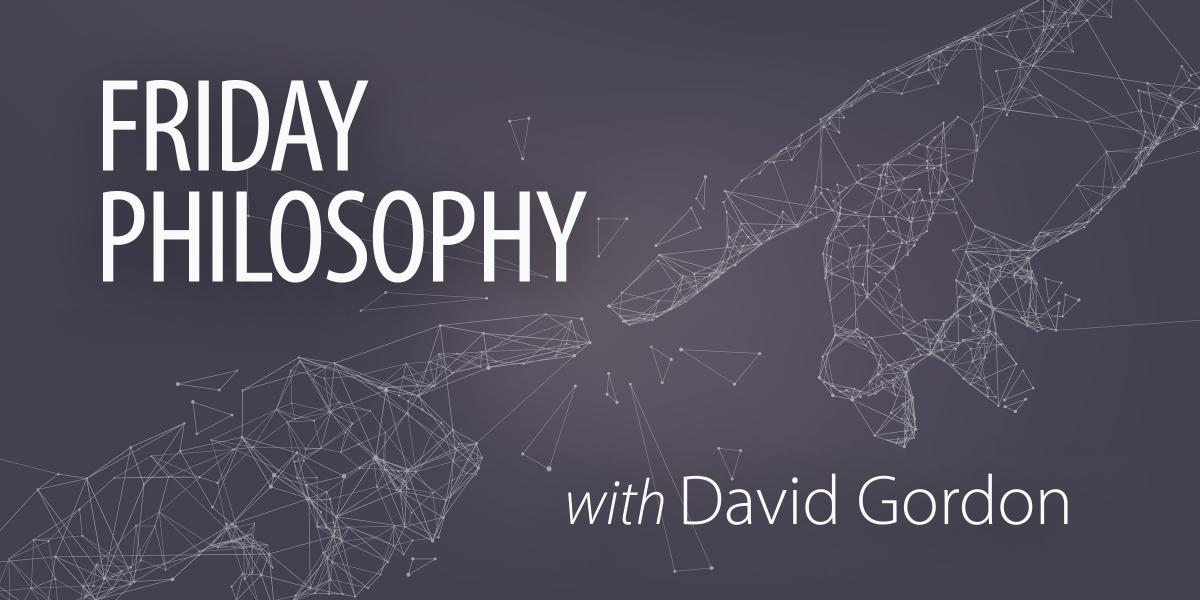The historian Richard Hofstadter was one of the most influential historians of his time, and The American Political Tradition—which first appeared in 1948—is still read today. He was early in his life sympathetic to Marxism and a “Progressive,” but he was disillusioned by the utopian mindset of these two ideologies after the Second World War, and he became a sharp critic of the “heroes” of this tradition. He was by no means pro-Southern, but his view of Abraham Lincoln fell well short of idolatry, and in this week’s column, I’d like to examine some of what he says in his chapter about him.
He sees Lincoln as riven by opposites: an ambitious man who thought of himself as humble; an opponent of slavery who for most of his life displayed little interest in it; and a man who sometimes took ruthless and decisive action while viewing himself as carried away by events. In Goethe’s familiar words, “Zwei Seelen wohnen, ach! in meiner Brust [Two souls, alas, dwell in my breast].”
According to the Lincoln legend, which Lincoln was himself avid to promote, Lincoln in his youth saw a mulatto woman being sold at a slave auction in New Orleans and said: “That is wrong!” Ever since then, it is claimed, he decisively opposed slavery. But there is no credible contemporary evidence that Lincoln said this, and in his correspondence with friends at the time about his trips to New Orleans, he does not mention slavery at all.
John Hanks recalled it thirty-five years afterward as a personal witness, whereas, according to Lincoln, Hanks had not gone beyond St. Louis on the journey. [Albert] Beveridge observes that Lincoln himself apparently never spoke of the alleged incident publicly or privately, and that for twenty years afterward he showed little concern over slavery.
We know that he refused to denounce the Fugitive Slave Law, viciously unfair though it was, even to free Negroes . . . They [Lincoln and his colleague in the Illinois legislature] went on to say that while the Constitution does not permit Congress to abolish slavery in the states, Congress can do so in the District of Columbia—but this power should not be exercised unless at “the request of the people of the District.” This statement breathes the fire of an uncompromising insistence upon moderation.
Lincoln was sincerely opposed to slavery, but his main concern was with white American workers, and he wanted to make sure that Illinois and the other border states, as well as the territories, were free of blacks, who should be kept out of Illinois altogether and, if they could be persuaded to go, colonized in Africa or Latin America.
As Hofstadter puts it,
Lincoln may have become involved in a gross inconsistency over slavery and the Negro, but this was incidental to his main concern. Never much troubled about the Negro, he had always been most deeply interested in the fate of free republicanism and its bearing upon the welfare of the common white man with whom he identified himself. On this count there was an underlying coherence in the logic of his career.
One of the most interesting parts of the chapter deals with the onset of the War Between the States, Lincoln was determined to force the states that had seceded back into the Union, because his overriding concern was to preserve the Union at all costs. He knew that there was little or no public sentiment in the North to compel these states to return, so he cleverly provoked South Carolina to fire the first shot at Fort Sumter, knowing that firing on federal troops would bring out very substantial anger in the northern states.
He pretended to be conciliatory in the first months of secession, but he knew that he had put South Carolina in an untenable position. He made clear that the fort would protect imposing duties and imposts on all foreign trade entering the state’s port, thus compelling the state to continue to finance the federal government from which it had seceded. By continuing to provision the fort, it would remain under federal control indefinitely. South Carolina was maneuvered into firing the first shot, in a way reminiscent of Franklin Roosevelt’s tactics toward Japan in the months before Pearl Harbor.
Here is Hofstadter’s comment:
By all rational calculation the Confederacy had much to lose and nothing to gain by war. Its strategic aim was merely to preserve itself as an independent state, an end that could be lost in war and achieved in peace. The North, on the other hand, once compromise and reconciliation had failed, had to wage a successful coercive war in order to restore the Union. Northern public opinion, which was in fierce agreement on the desirability of maintaining the Union, was reluctant to consider what saving the Union might cost. There was no more unanimity in the North on waging war to keep the Union than there had been in the South on seceding to destroy it. Always there loomed the danger that an apparently unprovoked attack upon the Confederacy would alienate so many people in the Union and the world at large that it would hopelessly cripple the very cause for which the war would be fought. Such an attack would certainly lose the support of the border states, still not withdrawn from the Union, which Lincoln was desperately eager to hold. . .
It was precisely such an attack that Lincoln’s strategy brought about. On March 29, 1861, the Secretaries of War and the Navy were ordered to co-operate in preparing a relief expedition to move by sea on April 6. Governor Pickens of South Carolina was notified that an attempt would be made to supply Fort Sumter “with provisions only,” and not with arms, and was advised by Lincoln that “if such an attempt be not resisted, no effort to throw in men, arms, or ammunition will be made without further notice, or [sic] in case of an attack upon the fort.” To Northern opinion such a relief expedition would seem innocent enough—bringing food to hungry men. But to the Confederacy it posed a double threat: force would be used if the attempt to provision the fort were resisted; and should it not be resisted, an indefinite occupation by Union forces could be expected, which would weaken the Confederate cause at home and sap its prestige abroad, where diplomatic recognition was so precious. Lincoln had now taken the burden of the dilemma from his own shoulders and forced it upon the Southerners. Now they must either attack the fort and accept the onus of striking the first blow or face an indefinite and enervating occupation of Sumter by Anderson’s soldiers. Could any supposedly sovereign government permit a foreign power to hold a fort dominating the trade of one of its few great harbors? As Professor James G. Randall has observed, the logic of secession demanded that the Confederates take the fort or that the Union abandon it.
Lincoln’s Emancipation Proclamation is in the conventional mythology deemed a milestone for liberty, but Hofstadter is not impressed:
The Emancipation Proclamation of January 1, 1863, had all the moral grandeur of a bill of lading. It contained no indictment of slavery but simply based emancipation on “military necessity.” It expressly omitted the loyal slave states from its terms. Finally, it did not in fact free any slaves. For it excluded by detailed enumeration from the sphere covered in the Proclamation all the counties in Virginia and parishes in Louisiana that were occupied by Union troops and into which the government actually had the power to bring freedom. It simply declared free all slaves in “the States and parts of States” where the people were in rebellion—that is to say, precisely where its effect could not reach. Beyond its propaganda value the Proclamation added nothing to what Congress had already done in the Confiscation Act. Seward remarked of the Proclamation: “We show our sympathy with slavery by emancipating the slaves where we cannot reach them and holding them in bondage where we can set them free.” The London Spectator gibed: “The principle is not that a human being cannot justly own another, but that he cannot own him unless he is loyal to the United States.”
At times Hofstadter overdoes the motif of the conflicts within Lincoln’s soul; Lincoln’s ambition, for example, seems to me much clearer than the reluctance he attributes to him. But there is a great deal of valuable material in the chapter, and many more insights to be found in it than I have had space to cover.




























